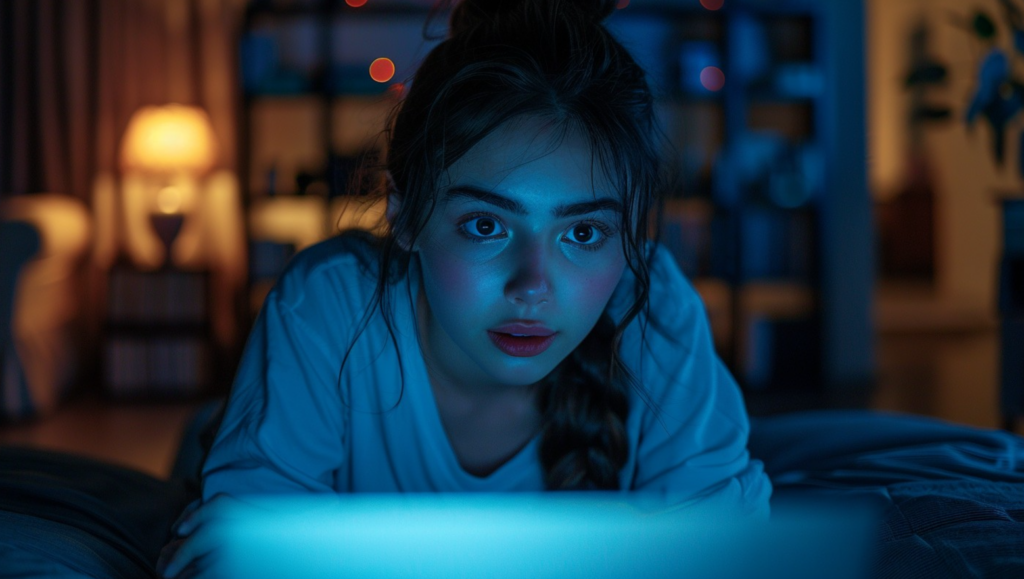In today’s digital age, exposure to blue light has become unavoidable, with screens dominating both work and leisure. While this light is beneficial during the day for alertness and productivity, prolonged exposure can negatively affect both sleep and skin health. Understanding these impacts is essential for protecting your well-being.
How Blue Light Affects Sleep
Blue light, emitted by devices like smartphones, tablets, and laptops, disrupts your body’s natural circadian rhythm. This internal clock regulates your sleep-wake cycle, and too much blue light before bedtime can suppress the production of melatonin—a hormone crucial for sleep.
- Melatonin Suppression: Reduced melatonin levels make it harder to fall asleep and stay asleep.
- Circadian Rhythm Disruption: Late-night screen time confuses your body into thinking it’s daytime, delaying sleep onset.
- Sleep Quality Issues: Poor sleep quality can lead to fatigue, reduced focus, and long-term health problems like anxiety and depression.
The Link Between Blue Light and Skin Health
Blue light doesn’t just affect sleep; it can also harm your skin. Prolonged exposure can penetrate deeper into the skin than UV rays, causing oxidative stress and accelerating aging.
- Premature Aging: Blue light triggers free radicals that break down collagen, leading to wrinkles and fine lines.
- Hyperpigmentation: Overexposure can worsen pigmentation issues, particularly for those with darker skin tones.
- Skin Barrier Damage: Blue light exposure can weaken the skin’s natural barrier, making it more prone to dryness and irritation.

How to Mitigate the Effects of Blue Light
- Limit Screen Time: Reduce exposure, especially two hours before bedtime, to protect your sleep.
- Use Blue Light Filters: Install screen filters or switch devices to “night mode” to reduce blue light emission.
- Wear Sunscreen: Opt for sunscreens with ingredients like zinc oxide, titanium dioxide, or antioxidants to shield skin from blue light damage.
- Adopt Healthy Skincare: Incorporate serums with vitamin C or niacinamide to combat oxidative stress.
Conclusion
The impact of blue light on both sleep and skin health is significant but manageable. By understanding its effects and taking preventive measures, you can protect your body from long-term harm while still enjoying the benefits of technology.
